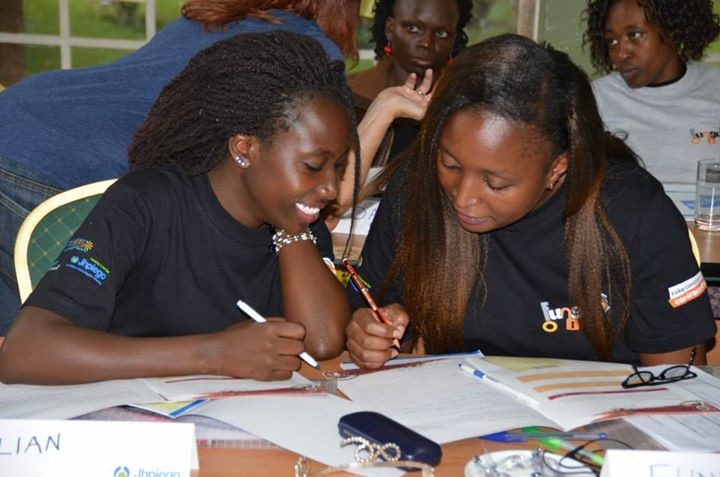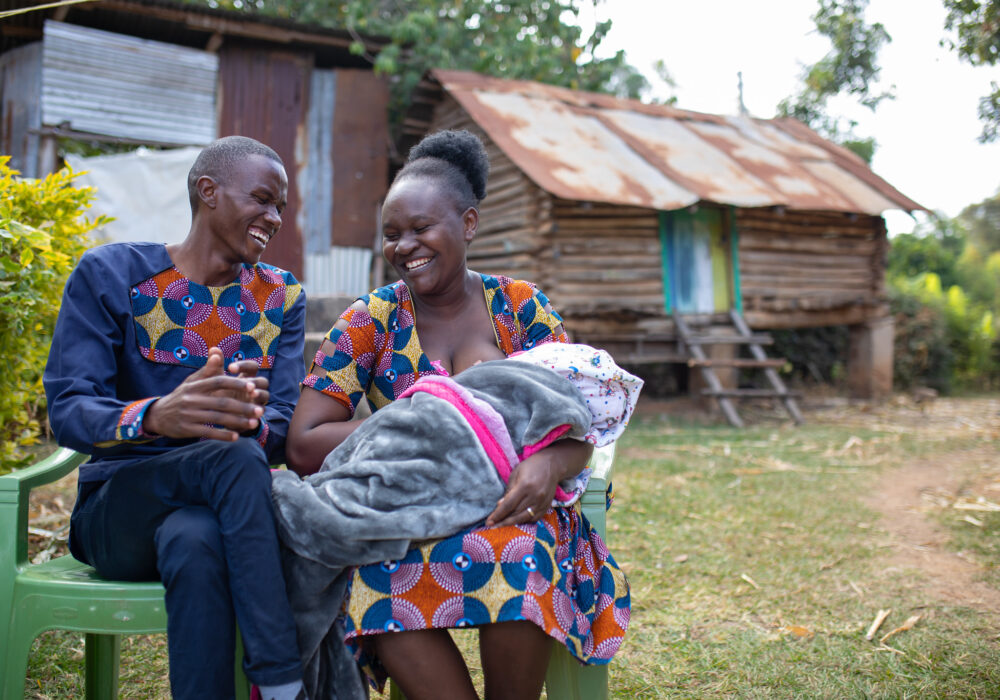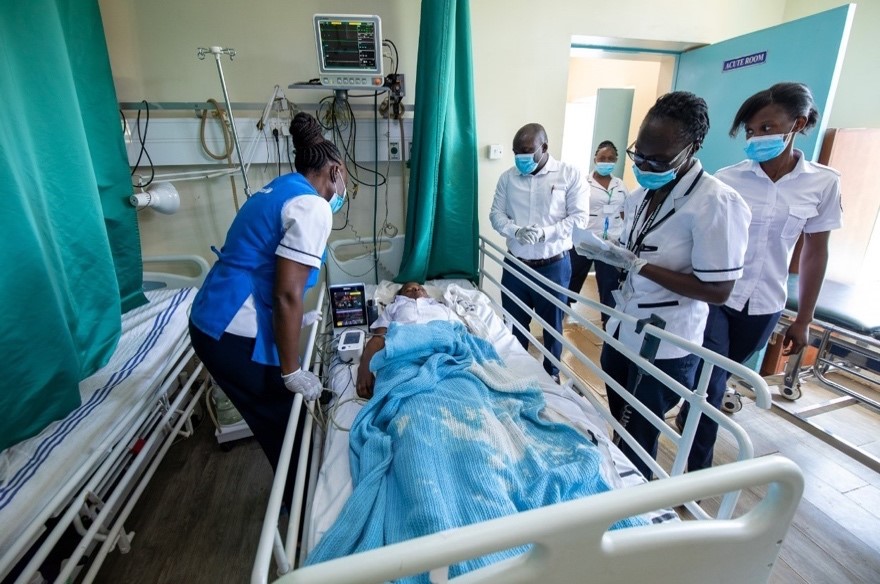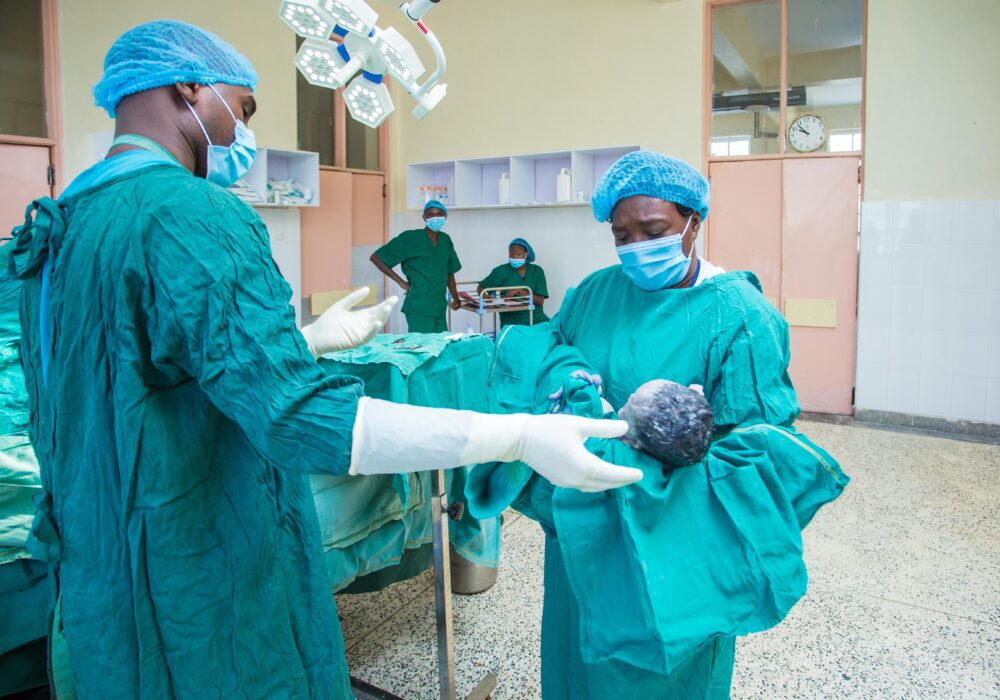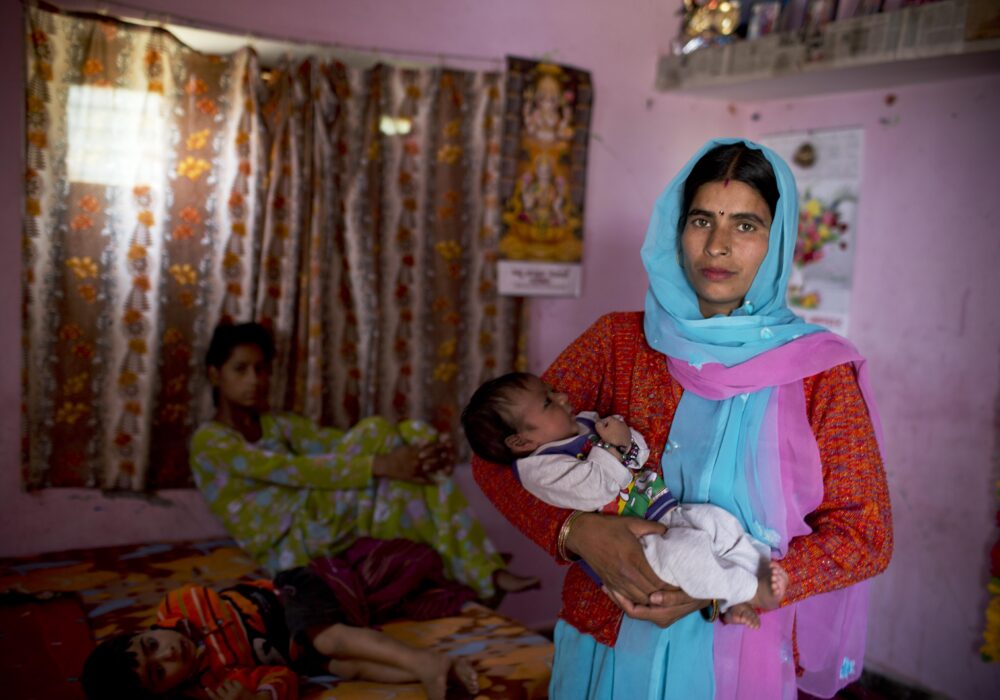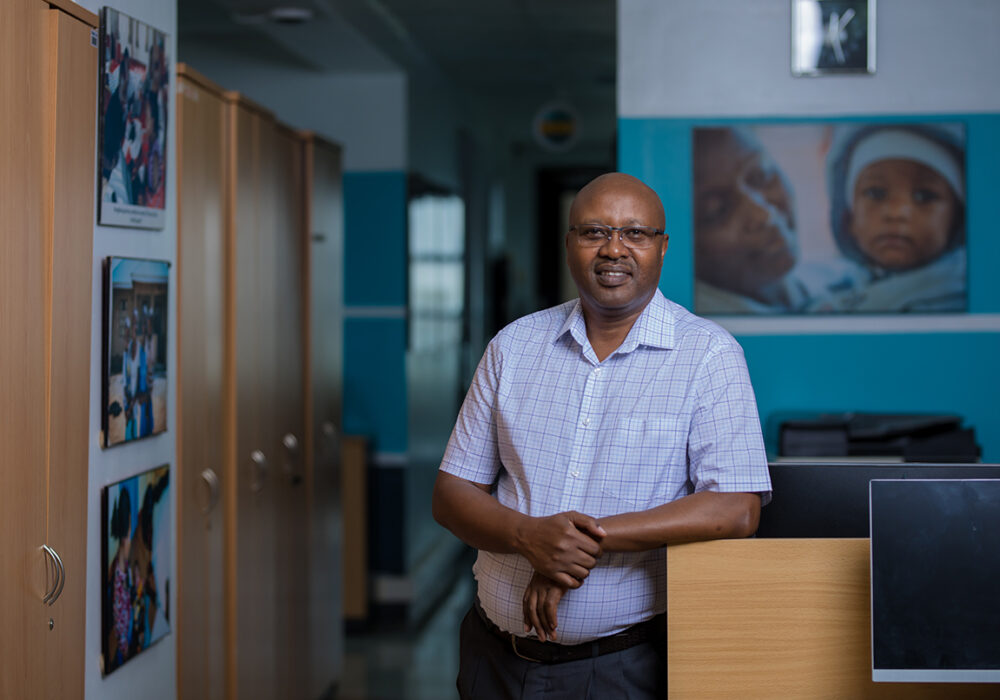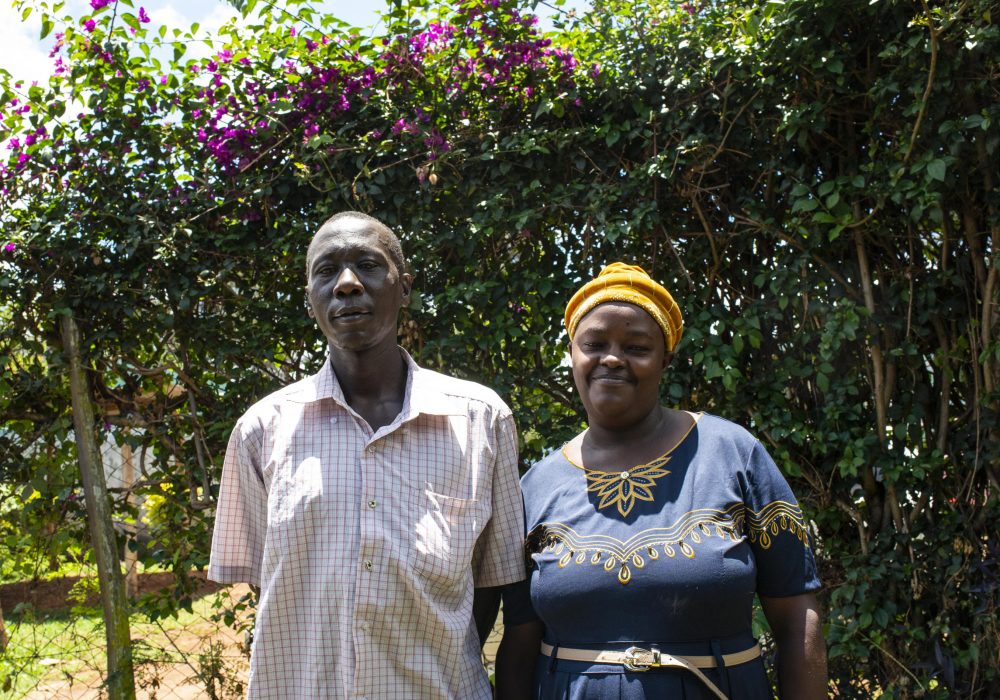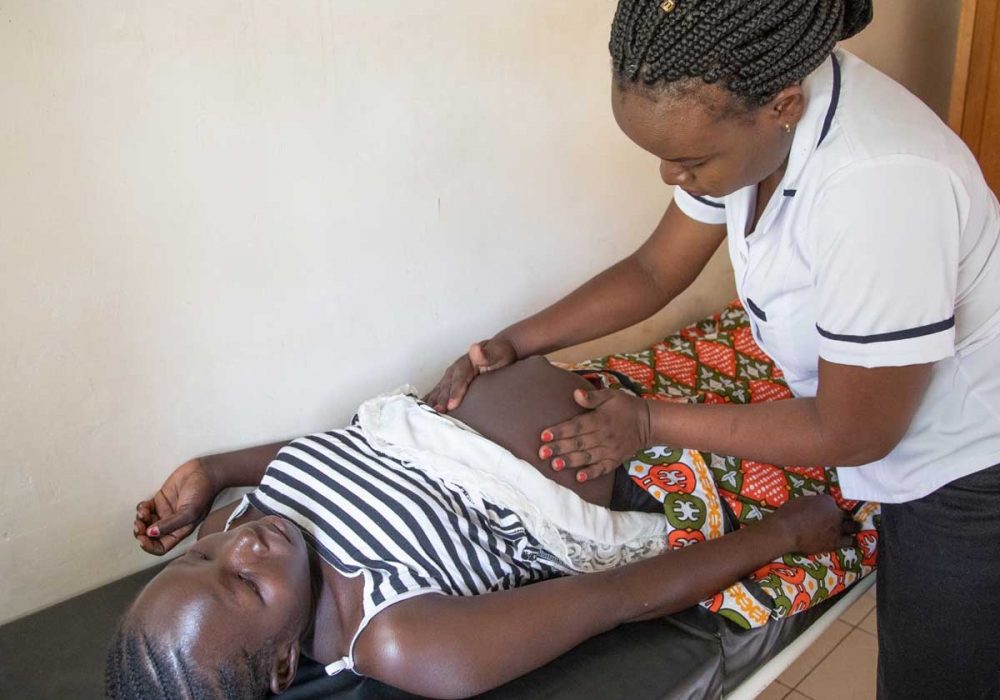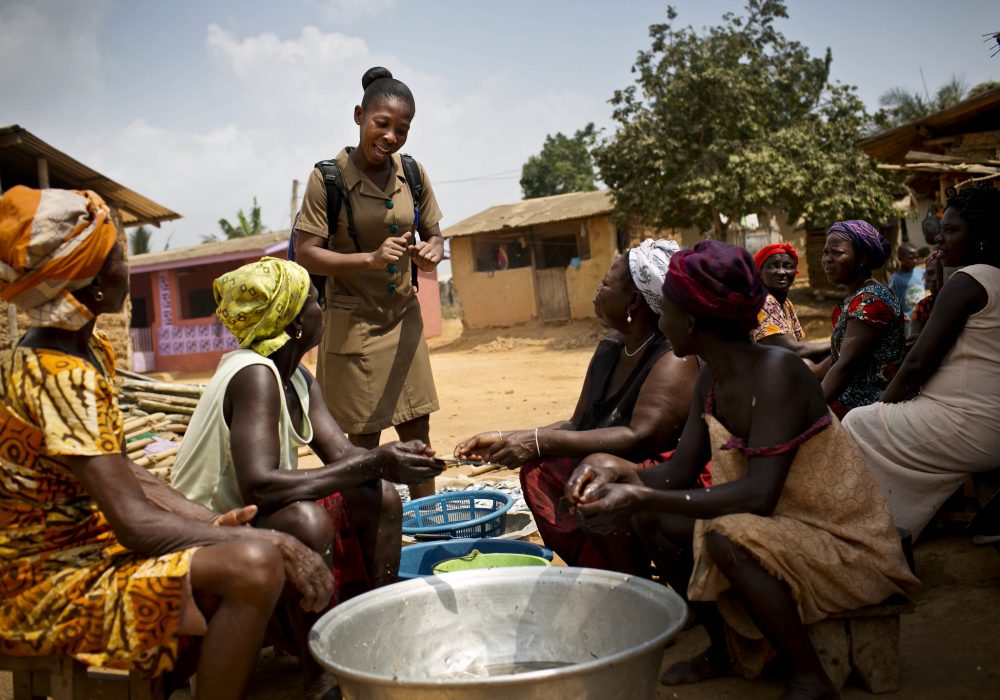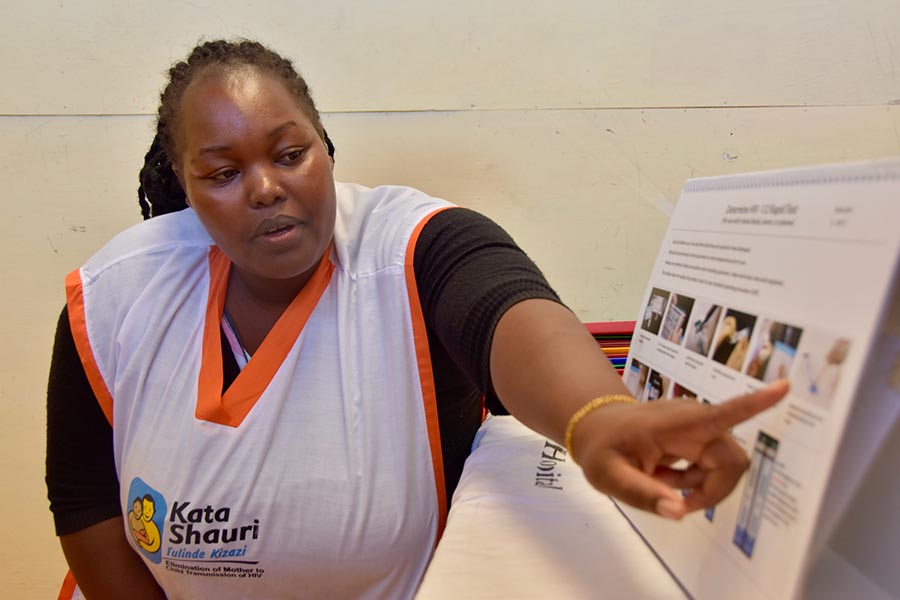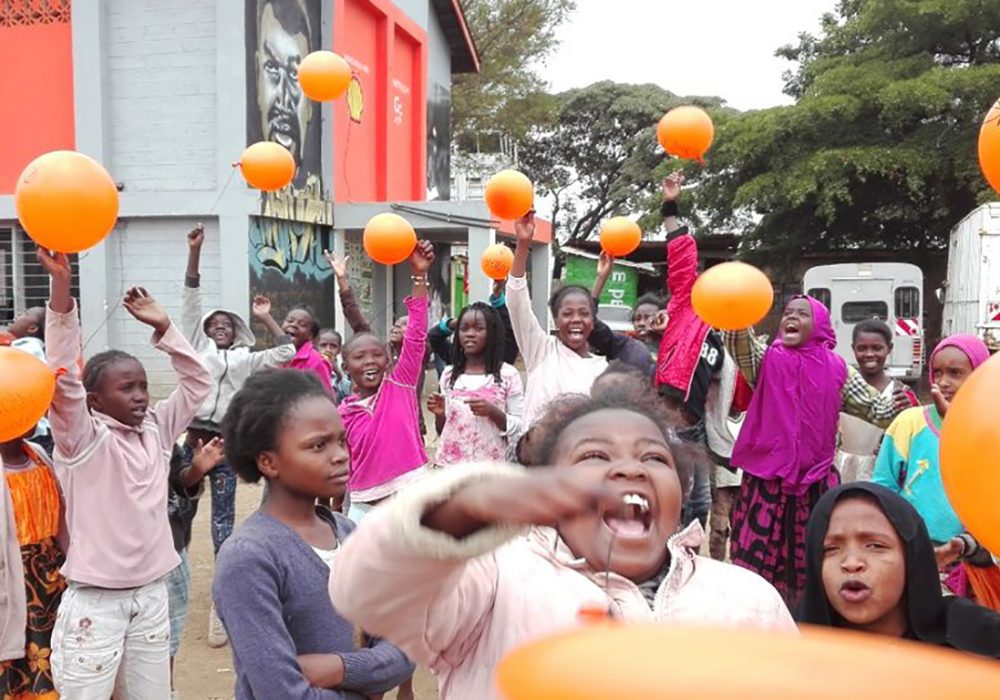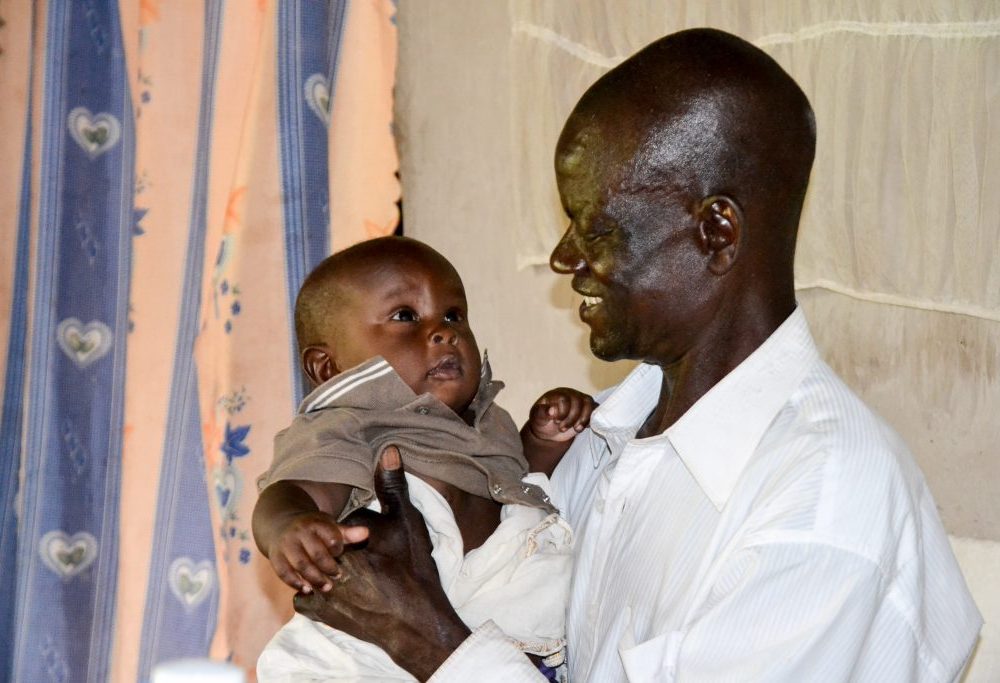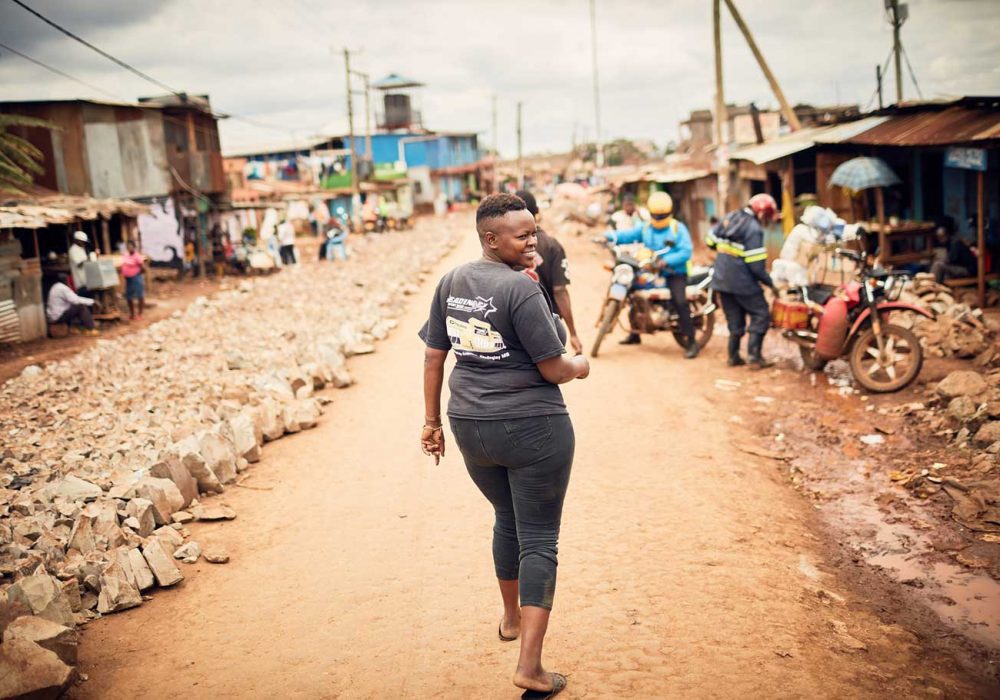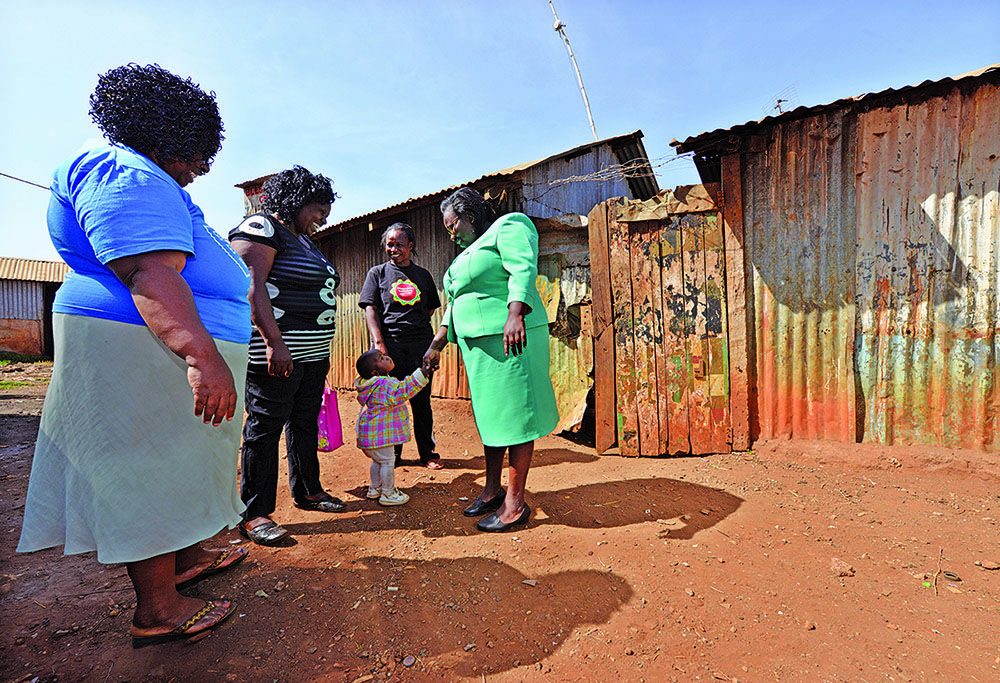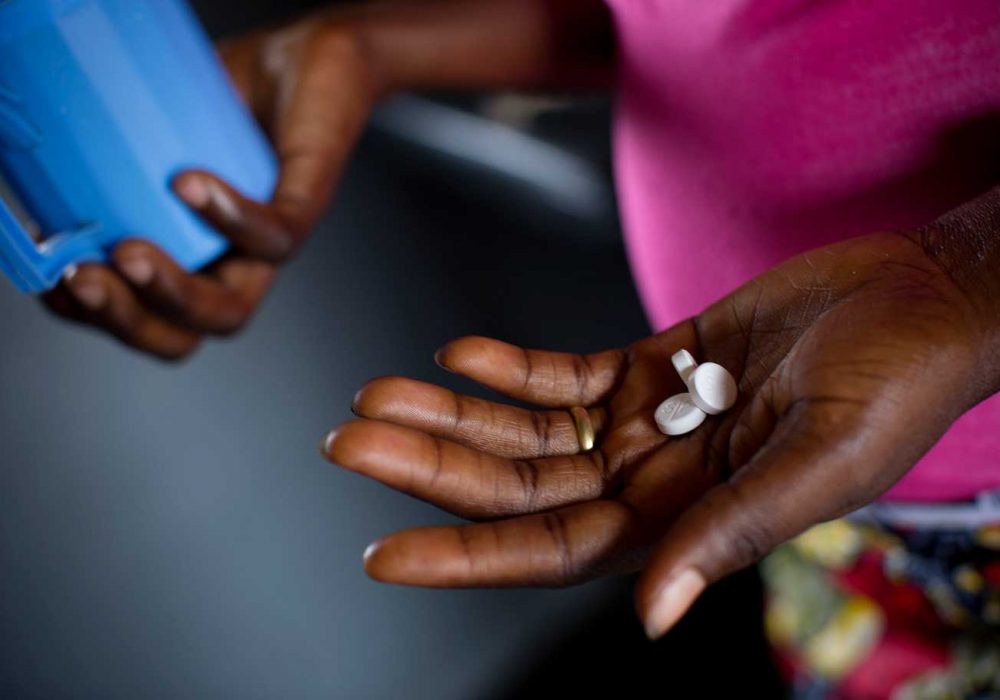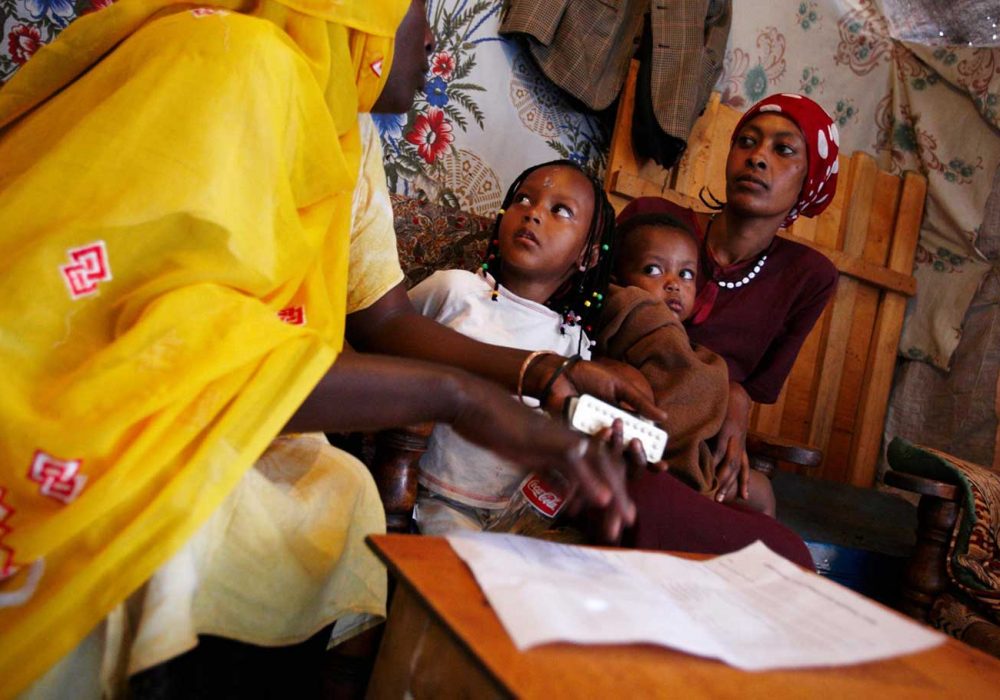Kenya


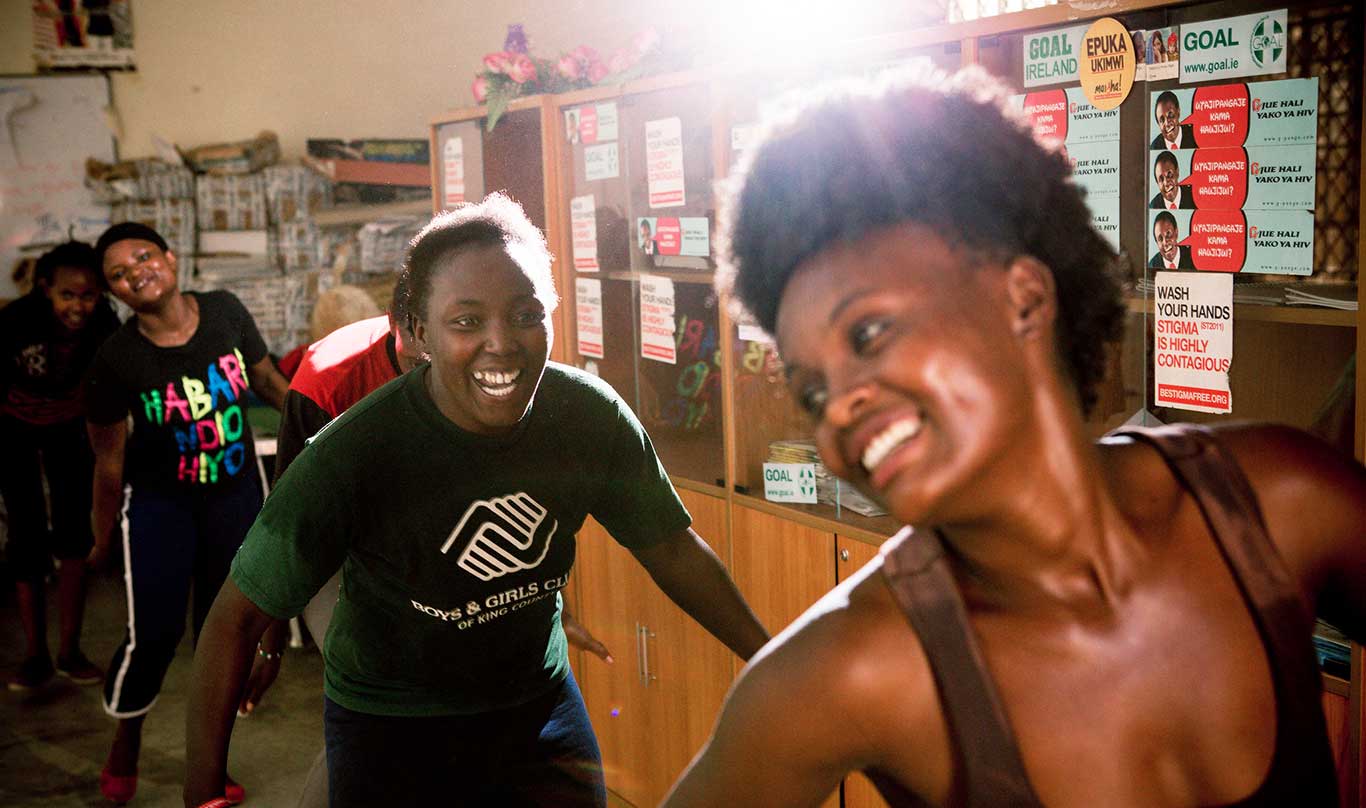
Country Contact
Paul Nyachae, Country Director
Tel. 254 722 134 000
14 Riverside (Off Riverside Dr.)
Arlington Block, 2nd Floor
P.O. Box 66119-00800
Nairobi, Kenya
Current and Recent Donors
Bayer Foundation
Bill & Melinda Gates Foundation
Bill & Melinda Gates Institute for Population and Reproductive Health
Comic Relief
Gavi, the Vaccine Alliance
Johnson & Johnson
Merck for Mothers
UNFPA
Unitaid
University of New Mexico
USAID
Nearly 40 years ago, Jhpiego opened its first country office here.
- Through Jhpiego’s projects, more than 5 million people in Kenya received HIV counseling and testing, newly identifying 55,060 people living with HIV and linking 52,575 of them to care and treatment.
- Jhpiego has supported the enrollment of more than 45,000 clients on HIV pre-exposure prophylaxis (i.e., when people at high risk for HIV take HIV medicines daily to lower their chances of getting infected).
- As a result of Jhpiego’s support to family planning services, more than 1.8 million first-time users opted to start a modern contraceptive method.
- Over 2.5 million antenatal care visits by pregnant women took place at Jhpiego-supported health care facilities, and 1.4 million deliveries were assisted by a skilled birth attendant.
Our Work in Kenya
Accelerating Postpartum Family Planning Integration into Primary Health Care in Kenya
Over the course of this five-year project, funded by the Bill & Melinda Gates Foundation, Jhpiego is working to scale up quality postpartum and post-abortion family planning services and increase uptake of contraceptive methods among postpartum and post-abortion women during the first year post-pregnancy at public primary health care centers (PHCs). In addition, Jhpiego is exploring and identifying specific interventions for private health facilities at the level of PHCs (or above) in select counties (Isiolo, Kakamega, Kwale and Makueni). In the final two years of the project, Jhpiego will foster the scale-up of postpartum and post-abortion family planning services by partnering with a local indigenous organization, Kisumu Medical and Education Trust, to lead this investment.
Accelerating Measurable Progress and Leveraging Investments for Postpartum Hemorrhage Impact (AMPLI-PPHI)
This multi-country project is catalyzing the introduction and adoption pathways for quality-assured drugs to treat postpartum hemorrhage (i.e., heat-stable carbetocin, tranexamic acid and misoprostol) through engagement and coordination with country governments and key stakeholders. The project aims to reduce maternal mortality and morbidity by making sure the right drug is in the right place at the right time for the right indication. Funded by Unitaid, AMPLI-PPHI is led by Jhpiego and supported by consortium partners PATH and the International Federation of Gynaecology and Obstetrics (FIGO). In addition to operating in four target countries (the Democratic Republic of Congo, Guinea, Kenya and India), an additional 13 other influence countries are benefitting from country and learning exchanges as well as from the sharing of project learning, resources and tools. For more information, please visit the project website.
Antenatal Care/Postnatal Care (ANC/PNC) Innovations and Implementation Research Platform (ANC/PNC Collective)
With funding from the Bill & Melinda Gates Foundation, Jhpiego is developing an ANC/PNC innovations and implementation research platform. This initiative is designed to strengthen ANC/PNC service delivery through implementation research in Ethiopia, Kenya, Malawi and Mali, and to disseminate learnings globally. The primary expected outcomes include earlier entry by pregnant women into ANC/PNC care; increased continuity of care; improved quality of care; and an improved understanding of key risk factors, vulnerabilities and morbidity/mortality outcomes. The research collective unifies multiple teams under a single collective, comprised of the following partners: Jhpiego, Harvard School of Public Health, Child Health and Mortality Prevention Surveillance (CHAMPS), RTI International, Christian Medical College Vellore, DAI, the World Health Organization, CARE/India and the University of Manitoba. As part of this collective, Jhpiego is: 1) conducting implementation research on innovative service delivery models and tools in three countries; 2) serving as technical advocacy lead by synthesizing data and findings across the collective to inform an evidence package; and 3) providing technical assistance, as needed, as collective partners conceptualize, design, implement and test new service delivery models. Jhpiego is also partnering with the Johns Hopkins School of Public Health Biostatistics Center and Department of International Health for support with statistical analysis, data management and implementation research design.
The Challenge Initiative (TCI) NextGen
As the implementing partner responsible for leading TCI’s East Africa Accelerator Hub, Jhpiego provides technical assistance to local governments in Kenya, Tanzania and Uganda as they implement interventions in family planning and adolescent and youth sexual and reproductive health. The goal of TCI NextGen, which builds on the previous TCI initiative, is to increase access to modern contraception for urban poor women. This project is funded by the Bill & Melinda Gates Institute for Population and Reproductive Health and Bayer AG.
Evidence and Enabling Environment for e-Pharmacy and Telemedicine for Family Planning in Kenya
In partnership with MYDAWA, an online pharmacy in Kenya, Jhpiego is working to enable and optimize e-pharmacy and telehealth models for reproductive health and family planning in Kenya. This project, funded by the Bill & Melinda Gates Foundation, seeks to produce evidence on the feasibility, acceptability, cost and scalability of these two complementary service delivery interventions in the country. The project is focused on creating a supportive e-pharmacy and telemedicine ecosystem and testing key innovations through specific e-pharmacy and telemedicine platforms. Jhpiego is providing technical, regulatory and research support to MYDAWA, package insights and tools from MYDAWA to share with other stakeholders including telemedicine and e-pharmacy platforms, and support the development of the enabling policy, regulatory and market environment in Kenya for e-pharmacy and telemedicine.
Evidence Generation for Point-of-Care Sexually Transmitted Infection Diagnostics in the Public Sector
To better understand the epidemiology of sexually transmitted infections (STIs) in Kenya and other low- and middle-income countries, and to advance STI diagnosis and treatment in alignment with new global World Health Organization STI management guidelines, there is a need to move toward a diagnostic-led approach that provides same-day, same-visit result and treatment, particularly for asymptomatic patients and high-risk populations. Through this project, Jhpiego and partner International Centre for Reproductive Health Kenya are working to validate a new, research-use-only, point-of-care (POC) diagnostic test for STIs against approved gold standard technologies. The project, funded by the Bill & Melinda Gates Foundation, will also describe operational considerations for use of the POC test, while using the results of approved gold standard technologies for clinically managing STIs among the study populations.
Misingi Imara Project
This three-year project, funded by the U.S. Agency for International Development, is led by the Kenya Medical Training College. The project seeks to strengthen human resources for health, quality management and community health systems at national and county levels in Kenya to improve equity, resource optimization and quality of essential health services. Jhpiego’s role as a subcontractor is to improve quality management systems by supporting the Ministry of Health and focus counties to develop a sustainable quality management program by improving skills and strengthening institutional capacity for quality planning, assurance and improvement.
MOMENTUM Country and Global Leadership
Moving Integrated, Quality Maternal, Newborn and Child Health and Family Planning and Reproductive Health Services to Scale (MOMENTUM) is a suite of projects, funded by the U.S. Agency for International Development, that aims to accelerate reductions in maternal, newborn and child mortality and morbidity in high-burden countries by increasing host country commitment and capacity to provide high-quality, integrated health care. Each of the projects has a specific focus area; together they provide a comprehensive, flexible package of support for countries as they overcome context-specific health challenges towards sustainable development. The six-year, Jhpiego-led MOMENTUM Country and Global Leadership project focuses on: 1) providing targeted technical and capacity development assistance to our missions, partner countries and local organizations; and 2) contributing to global technical leadership and policy dialogue for improved maternal, newborn and child health, voluntary family planning and reproductive health outcomes. Jhpiego’s sub-partners under this project are: Save the Children, Johns Hopkins University International Vaccine Access Center, Quicksand, Matchboxology, BAO Systems, Avenir Health, McKinsey and Company, PACT, Institute for Healthcare Improvement, Christian Connections for International Health and Ubora Quality Institute.
Obstetric Fistula
With funding from Johnson & Johnson, Jhpiego is leveraging the lessons learned and strong partnerships developed under a previous project, the Obstetric Safe Surgery project, to build surgical capacity to treat obstetric fistula, establish a Fistula Center and help improve access to obstetric fistula services in Makueni County, Kenya. This project also fosters safe, high-quality respectful care, and ensures successful rehabilitation and reintegration following repair.
Reaching Impact, Saturation, and Epidemic Control (RISE)
RISE is a five-year global project funded by the U.S. President’s Emergency Plan for AIDS Relief (PEPFAR) and the U.S. Agency for International Development (USAID). RISE works with countries to achieve a shared vision of attaining and maintaining epidemic control, with stronger local partners capable of managing and achieving results through sustainable, self-reliant and resilient health systems by 2024. RISE’s contributions to this work will lead to fewer new HIV infections, decreased HIV-related morbidity and mortality, and increased quality of life for people living with HIV. With USAID PEPFAR investments, RISE supports countries to achieve and maintain epidemic control by providing strategic technical assistance and direct service delivery to improve HIV prevention, case finding, treatment programming and viral load suppression. The primary objectives of the RISE project are to: 1) attain and maintain HIV epidemic control among at-risk adult men, women and priority populations; 2) attain and maintain HIV epidemic control among key populations; 3) strengthen health systems including improved program management, health information systems, human resources for health and financial systems to ensure attainment and maintenance of epidemic control; and 4) support the transition of direct funding and implementation to capable local partners to meet the PEPFAR goal of 70% of funding to local partners by 2020. The project is led by Jhpiego with the following partners: ICAP at Columbia University, Management Sciences for Health, Anova, BAO Systems, Johns Hopkins University Center for Public Health and Human Rights and Mann Global Health. RISE is currently active in several countries, including Kenya.
Study on Delivering HIV Oral Pre-Exposure Prophylaxis through Private Pharmacies
Jhpiego is implementing a four-year research project, funded by the Bill & Melinda Gates Foundation, to evaluate the effectiveness of delivering HIV oral pre-exposure prophylaxis (PrEP) through private, brick-and-mortar pharmacies. Private retail pharmacies are more ubiquitous and feature longer opening hours, shorter wait times and greater client privacy than public health care facilities. Jhpiego is collaborating with research partners to implement, refine and assess: 1) a range of approaches related to client identification and PrEP service delivery; 2) the performance of HIV self-testing to support pharmacy PrEP delivery; and 3) the impact of various cost-sharing models on PrEP uptake. The partners are: the Fred Hutchinson Cancer Research Center, Jomo Kenyatta University of Agriculture and Technology/Partners in Health Research and Development, Kenya Medical Research Institute and the University of Washington. Ultimately, this work will contribute an evidence base for policy advocacy that can bring this private pharmacy approach to scale within Kenya and globally.
Support to the HPV Vaccine Acceleration Program Partners Initiative (HAPPI) Consortium
The human papillomavirus (HPV) vaccine is one of the most effective ways to prevent cervical cancer and other HPV-related diseases, yet there is still disproportionate access to it, specifically among girls and adolescents in low- and middle-income countries. The HAPPI Consortium, funded by the Bill & Melinda Gates Foundation, was launched to increase and sustain equity and program quality, and accelerate coverage of HPV vaccination. John Snow, Inc. and HAPPI Consortium partners Jhpiego, the Clinton Health Access Initiative, International Vaccine Access Center and PATH are focusing on enabling evidence-based policy decisions, enhancing and sustaining equity, improving program quality, providing direct technical assistance in selected countries and monitoring, evaluating and learning to build on the evidence base. Specifically, Jhpiego is supporting the HAPPI/HPV Accelerator-Phase 1 Project to facilitate global coordination and provide HPV vaccine support in several countries, including Kenya.
Virtual Care Model for HIV Oral Pre-Exposure Prophylaxis
With funding from the Bill & Melinda Gates Foundation, Jhpiego is developing a virtual care model that allows clients to access HIV pre-exposure prophylaxis (PrEP) through an e-pharmacy. Jhpiego is collaborating with partners to design and evaluate an end-to-end e-pharmacy PrEP delivery model that provides clients a convenient, seamless, empathetic and discreet experience of supported self-care through a single, trusted point of contact. Partners in this initiative include: MYDAWA (an e-pharmacy in Kenya that provides home delivery of products purchased online), the University of Washington, the Fred Hutchinson Cancer Research Center, Jomo Kenyatta University of Agriculture and Technology/Partners in Health Research and Development, and Audere (a non-profit software firm that develops diagnostic aids for self-testing of malaria, COVID-19 and influenza). Jhpiego is providing implementation support to MYDAWA on the provision of PrEP services package through MYDAWA’s online platform, as well as leading advocacy efforts to ensure alignment with government policy and to translate research findings in support of policy changes to de-medicalize PrEP delivery.
The people we serve
Country Contact
Paul Nyachae, Country Director
Tel. 254 722 134 000
14 Riverside (Off Riverside Dr.)
Arlington Block, 2nd Floor
P.O. Box 66119-00800
Nairobi, Kenya
Current and Recent Donors
Bayer Foundation
Bill & Melinda Gates Foundation
Bill & Melinda Gates Institute for Population and Reproductive Health
Comic Relief
Gavi, the Vaccine Alliance
Johnson & Johnson
Merck for Mothers
UNFPA
Unitaid
University of New Mexico
USAID




